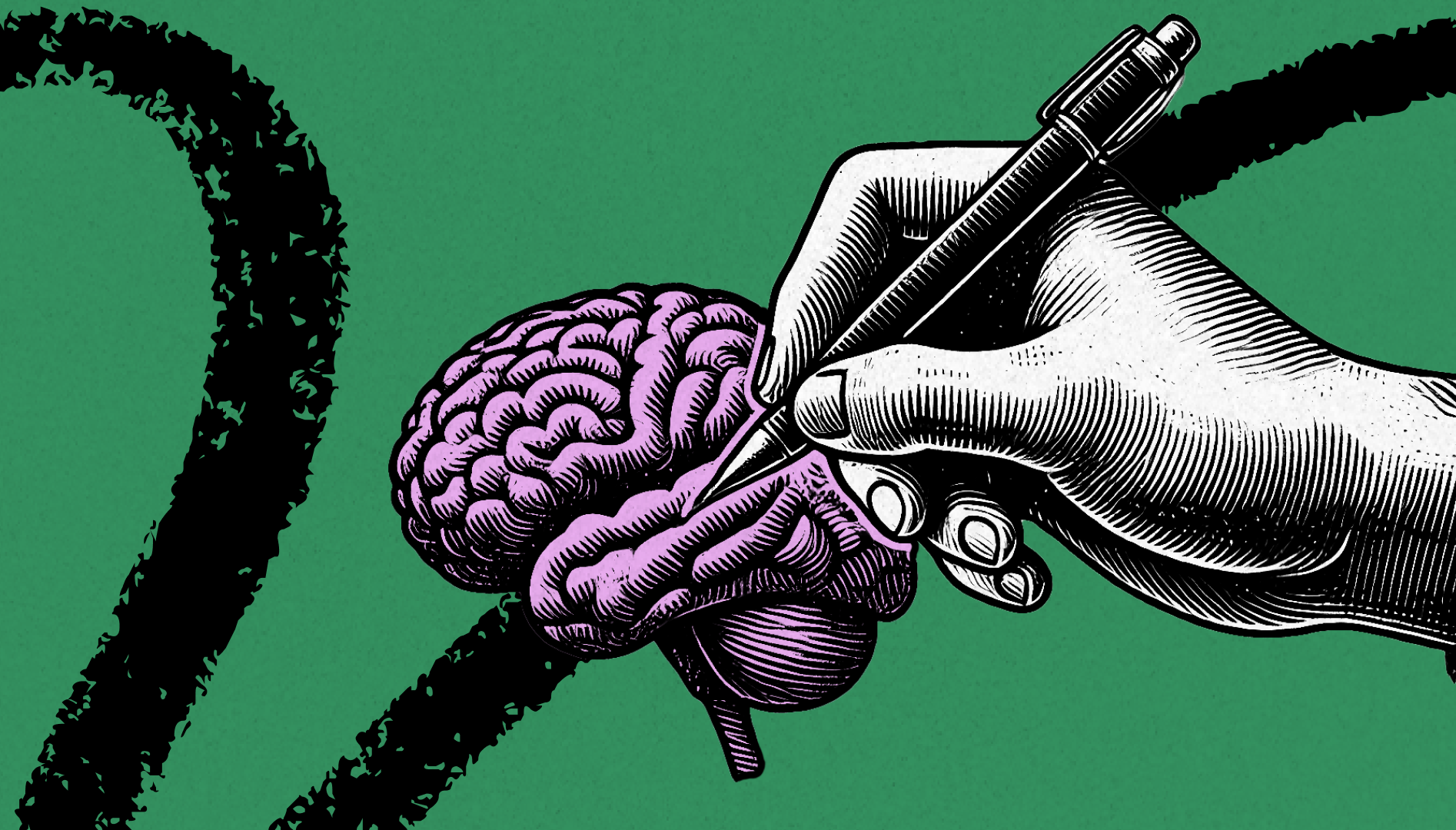
Was this newsletter forwarded to you? Sign up to get it in your inbox.
I always love an article that confirms my priors, so I was particularly excited to read Paul Graham’s latest essay, "Writes and Write-Nots."
In case you missed the piece, he argues that writing is an extension of thinking. He believes that as a skill, writing well is already very unequally distributed. And in a world with AI, where your writing is instantly up-leveled by bots like ChatGPT, even fewer people will need to learn to write well. Therefore, even fewer people will think well—dividing the world between writers and write-nots and, as a consequence, between thinkers and think-nots.
This piece pinpoints one of the things I love so much about writing: It is a way of thinking for me. But I don’t share his worries about writing or thinking. Here’s my attempt to articulate why.
Writing is thinking, but thinking is not writing
PG’s argument hinges on a central premise: Writing is thinking. That premise is true as a subset but not as an identity. Writing is thinking, but the converse doesn’t hold: Writing is not the only way to think.
Consider conversation. Many of history’s most important thinkers, including Socrates and Plato, held that conversation was a much better mode for thinking than writing was. In fact, Plato was suspicious of writing as a tool for thinking because it reduces the need to memorize. And unlike in conversation, a piece of writing cannot talk back to the reader—which he regarded as supremely important.
Whatever you think of the impact of AI on people’s writing abilities, a highly intelligent conversation partner well-versed in all of human knowledge is quite a good thinking aid. I’ve found this repeatedly with ChatGPT’s Advanced Voice mode, which I’ve used to explore everything from quantum mechanics to philosophy.
Writing is a way of thinking—one that is particularly valuable to me. But even in a world where writing goes away, many types of thinking will remain, and they’ll be augmented—rather than eliminated—by AI if we so choose.
But there’s a subtler idea in PG’s argument—that a certain kind of thinking is only possible through writing. He doesn’t say specifically what kind of thinking that is, but I can take an educated guess: When you turn the vast, interconnected network of thoughts, feelings, and ideas in your mind into a line of words, you find sequence, order, and story. You expose fallacy and fuzziness. Externalizing your thoughts pins them down, and once they are pinned you can bring your whole mind to bear on them, over and over, to clarify and improve them.
And writing doesn’t just tell you what you already think somewhere in the cobwebbed attic of your brain. It actively helps you to generate new—and better—thoughts and ideas as you do it.
I believe this is the kind of thinking PG is afraid might go away, or at least become more scarce in an AI-driven future. He likens this to physical strength in pre-industrial times. Everyone used to be strong before the Industrial Revolution as a result of performing manual labor. But now that machines can do a lot of that labor, many people are strong only if they choose to go to the gym.
In his version of the AI-assisted future, you don’t have to labor over sentences. Instead, you tell your chatbot what you want, it figures things out, and you take its answer and move on. As a society, we lose our ability to think certain kinds of thoughts—just like we’ve lost our physical strength.
Sponsored by: Every
Tools for a new generation of builders
When you write a lot about AI like we do, it’s hard not to see opportunities. We build tools for our team to become faster and better. When they work well, we bring them to our readers, too. We have a hunch: If you like reading Every, you’ll like what we’ve made.
Thinking things through in the allocation economy
To test PG's prediction, we can look at people who already operate the way he imagines everyone will in an AI-powered allocation economy: managers. Managers are not the ones doing all of the work—instead, they’re directing other people to do it for them, just like people in the future might direct an AI.
On some accounts of the world, managers are simply there to take credit for what other people do. (And certainly, some managers are like this.) But as any good manager will tell you, even though you may not be doing all of the work yourself, it requires a great deal of thinking.
As a manager, you need to clearly communicate the problem you want to solve and the vision you have for solving it. You have to decide who should work on it and how. You need to know what to delegate and what to do yourself—and how to tell the difference. As your team progresses and you see the output of their work, you often change your thinking about the problem you’re trying to solve. Sometimes you’ll come to new conclusions that you could have never anticipated at the start. What’s more, much of managing is done through writing, and managers who can write better are more effective than those who can’t.
Managing is a thinking process—it’s a working-through. I see no reason to think that it will go away, even if AGI is achieved in the near term. In a world where more work is done by AI, the line of words that a person produces may more frequently look like a prompt than prose, but those who write more effective, creative, and interesting prompts will do better thinking than those who don’t.
British philosopher Alfred North Whitehead famously wrote, “Civilization advances by extending the number of important operations which we can perform without thinking of them.” AI will certainly extend this to many new domains. It will change what parts of writing humans need to think about. But writing is not a static thing, nor has it ever been. It is a continually evolving art, one that looks very different today than it did 100 or 1,000 years ago.
My hope is that, on balance, AI will free people from the parts of writing that are otherwise drudgery. It will, in turn, allow us to spend more time writing—and thinking—about more interesting things in more interesting ways.
Dan Shipper is the cofounder and CEO of Every, where he writes the Chain of Thought column and hosts the podcast AI & I. You can follow him on X at @danshipper and on LinkedIn, and Every on X at @every and on LinkedIn.
We also build AI tools for readers like you. Automate repeat writing with Spiral. Organize files automatically with Sparkle. Write something great with Lex.
Find Out What
Comes Next in Tech.
Start your free trial.
New ideas to help you build the future—in your inbox, every day. Trusted by over 75,000 readers.
SubscribeAlready have an account? Sign in
What's included?
-
Unlimited access to our daily essays by Dan Shipper, Evan Armstrong, and a roster of the best tech writers on the internet
-
Full access to an archive of hundreds of in-depth articles
-
-
Priority access and subscriber-only discounts to courses, events, and more
-
Ad-free experience
-
Access to our Discord community




Comments
Don't have an account? Sign up!
I really appreciate this perspective! It's one that I strongly agree with. Hearing people shouting about AI taking over everything is quite frustrating and your comparison of AI to strength and the Industrial Revolution is one I intend to carry forward.
@cody.j.debos so glad you like it!
Nice piece Dan, and thanks for highlighting the pg essay — somehow I missed it.
I pretty much agree with everything you've said, and your framing resonates. My main concern is striking the right balance: how do I keep LLMs as a sharpening tool for my writing, rather than letting them take over the heavy lifting? I want AI to challenge and refine my skills, not to become a crutch that does the actual writing for me.
I also want to maintain my 'voice', and I want it to grow and evolve over time. Again, something that will most certainly go out the window if I let the AI take over.
@s_8463 thanks scott glad it resonates!
I don’t have a specific answer but I suspect pride of craft has something to do with it. Great creative work is about relentlessly imbuing your taste into every aspect of your work…by definition that requires your engagement and voice (even if the AI is doing some of it at your direction)